It’s the opening day of the 72nd Cannes film festival and all is calm on the promenade. The sky is a warm blue, the sea is smooth as glass and the old men play boules on the patch of sand by the bandstand. The place is quiet, too quiet; it puts the senses on edge. This event, after all, thrives on incident and uproar. It needs to rip back the curtain and snap our eyes open. It needs a film to knock the world off its axis and shake the dead from their graves. After a fashion, that’s what it’s about – to receive.
“This whole thing’s going to end badly,” quips Adam Driver throughout the course of Jim Jarmusch’s self-spoiling, self-hugging The Dead Don’t Die. And while I’d hesitate to call this year’s Cannes opener a good film exactly, it’s fizzy and fun, with an undertow of despair: an apocalyptic zombie comedy in which an excess of polar fracking has warped the planet’s rotation and reanimated the corpses at the local morgue. Driver and Bill Murray play the droll small-town cops attempting to clean up the mess, while an undead Iggy Pop lurches off to the diner in search of fresh coffee. What does it matter if Jarmusch’s approach to this material is, finally, too laidback and knowing ever to find a fifth gear? It’s hard to hate a film that features Tom Waits as a hermit subsisting on squirrels and bugs and Tilda Swinton as a heavy-metal elf queen who decapitates foes with a swish of her samurai sword.
The Dead Don’t Die styles itself loosely – too loosely – as a Trumpian satire, offering a jaundiced sketch of the brain-dead red states and casting Steve Buscemi as a dirt farmer whose baseball cap bears the garbled logo “Keep America White Again”. But the film might just as easily stand as a joke about Cannes. It seems that no sooner has the festival begun than the punters are already feeling the strain. On the morning of the second day, they come staggering en masse up the road, strung out on caffeine, wild-eyed from lack of sleep, prepared to indiscriminately gorge on whatever the schedule throws up. Outside the Palais, a picket line of climate change protesters sports T-shirts that warn of the sixth mass extinction. The start of the festival feels like the end of the world.
Then again, there’s always been a faint air of the Titanic about Cannes, the sense that we’re aboard a luxury ocean liner, toiling through choppy waters, to the point where it has almost become the festival’s natural state. It’s buffeted by changes in the industry at large (steadfastly holding out against the dominance of Netflix ). It’s flayed by criticism of its dearth of female talent (this year’s competition finds room for a record-equalling four women directors, though you’d struggle to pick them out amid the 19 men). And all the while, Cannes stays upright and doggedly cleaves to its course. Elton John and David Furnish swing by to promote Rocketman. The guests guzzle wine of the top deck of the Palais. Driver’s doomsday prophecy remains – thus far – just a rumour.
So it’s on with the show; the films are piling up all around. Having won the 2016 Palme d’Or for I, Daniel Blake, Ken Loach returns to the fray with Sorry We Missed You, spotlighting a zero-hours Britain where exploitation passes itself off as freedom. Kris Hitchen gives a full-blooded performance as Ricky, a Mancunian delivery man racing the clock and chasing the dream like a modern-day Tom Joad. But his debts are mounting, his family is in freefall and he’s struggling not to fall asleep at the wheel.
Only a few years back, this director was contemplating retirement. But it seems that the worse the world gets, the more vital he becomes and the harder his message hits home. Sorry We Missed You is humane and impassioned in the patented Daniel Blake mould. Loach would hate the comparison, but his recent work is as solid and dependable as a row of Model-T Fords.
The whispered word in the queue is that Loach won’t win again. The competition is too fierce; the jury want someone new. I wasn’t entirely convinced by Ladj Ly’s Les Misérables, a stentorian law-and-disorder drama that takes its lead from Victor Hugo’s novel, though it rustles up a fine docu-realist portrait of the Paris banlieues, burning with tension and about to explode. There’s also much to admire in Atlantique, Mati Diop’s gorgeous, death-haunted Valentine from the Senegalese coast. Not even the ocean, it seems, can keep an itinerant worker from the arms of his true love.

Best in show at this early stage? I’m plumping for Bacurau, which has the disorienting tone of a peyote western and scrambled the brains of at least half the audience. Directed by Kleber Mendonça Filho and Juliano Dornelles, this is a dystopian parable of globalisation (in general) and Bolsonaro’s Brazil (in particular) with its tale of a human safari where gun-toting US tourists hunt the locals through the scrub. Bacurau is probably too fevered and sprawling to actually take the top prize, but I caught up with it at the 10pm screening and it proceeded to burrow deep into my dreams.
Totter out of the Palais and proceed up the Croisette and one arrives at the films of the directors’ fortnight, an unruly Cannes strand that prides itself on punching well above its weight. This year’s edition opens with Quentin Dupieux’s Deerskin, a pleasingly playful and scratchy black comedy starring The Artist’s Jean Dujardin as a sad-sack hollow man whose cherished cowboy jacket is the catalyst for an alarming transformation.
I was similarly impressed by Canción Sin Nombre, Melina León’s stealthy account of a child-trafficking scandal in 1980s Peru. As a director, León favours slow, gliding tracks across the country’s bone-dry interior. Her characters are constantly obscured by dust clouds or falling into shadow as they nose, incrementally, towards the heart of the matter.
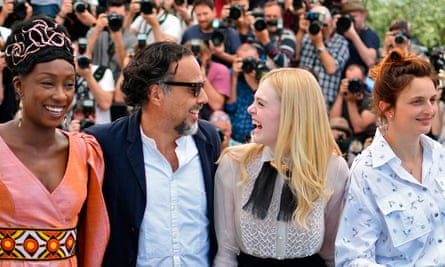
The first bad review of this year’s festival came courtesy of Bill Murray, who appeared to doze off during the opening speeches. The first political statement? That was delivered by jury president, Alejandro González Iñárritu, unloading on Donald Trump’s immigration policy and hailing Cannes as its antidote: an outward-facing utopia, open to the world. Iñárritu sits at the head of a panel that includes the likes of Kelly Reichardt, Elle Fanning and Yorgos Lanthimos. But the Mexican director was keen to downplay his credentials as Cannes’s ultimate arbiter of good taste, loftily explaining: “I don’t like to judge films. I like to be impregnated by them.” I’m picturing him making this statement while dressed in a bathrobe, perhaps raising his wine glass in a saucy salute.
All the same, the man may be on to something. Early evidence suggests that Cannes’s pregnancies have already borne fruit. It used to be that this festival was a child-free zone, a playground for the old, so much so that one half-wondered whether a cackling Robert Helpmann was loading all the under-fives into cages and whisking them out of town. This year it’s different. The organisers have launched an initiative, Le Ballon Rouge, aimed at lightening the load for those delegates who also happen to be parents. The switch is so sudden it catches the security staff unawares, and they send British film-maker Greta Bellamacina packing when she shows up with her baby. The organisers later apologise for the error.
But the tide can’t be stopped. The young are arriving. And now all at once the place seems chock-full of children. There’s a kids’ pavilion on the beach staffed by professional nannies and a breastfeeding corner situated inside the main building. I’ve seen dads pushing buggies along the Croisette and sitting beside squirming, yowling toddlers at the local cafe. If this is Cannes’s future, there’s a lot going for it. It speaks of new life, green shoots, the promise of a brighter tomorrow. We need the fresh blood to keep the zombies at bay.
Still to come at Cannes

Once Upon a Time in Hollywood (21 May)
Is Quentin Tarantino really the best person to tackle the madness and horror of the 1969 Manson murders? Probably not, but so what? He’s doing it anyway, merrily turning the clock back to counterculture LA and dragging Leonardo DiCaprio (above) and Brad Pitt along for the ride. We’re filing this one as Inherent Vice meets Beyond the Valley of the Dolls.
The Lighthouse (19 May)
From writer-director Robert Eggers, creator of The Witch, comes a horror flick set in the 19th century that strands Willem Dafoe and Robert Pattinson on a rocky island off the coast of New England. While the plot remains cloaked in mystery, the black-and-white stills promise something eerie and briny. Eggers’s film looks as if it might have been dug up on the beach, like the ribs of a boat or the bones of a whale.
Sylvester Stallone: live and unleashed (24 May)
“Very honoured to be going to the Cannes film festival for a career retrospective,” Sly Stallone tweeted last week. Somewhat presumptuous given that the event in question appears to run the gamut from a look back at the first Rambo flick to a look-ahead to the new one, Last Blood (above). Still, the mumbling mainstay of US cinema is reliably good value. He was last seen in Cannes riding a tank up the street to promote 2014’s The Expendables 3. XB
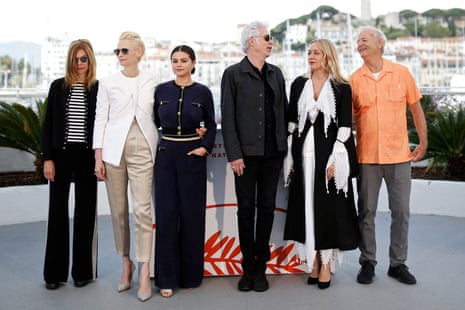


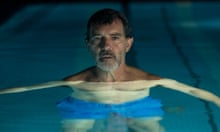
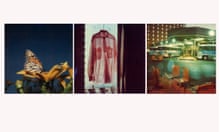


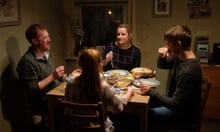


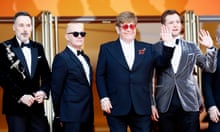
Comments (…)
Sign in or create your Guardian account to join the discussion